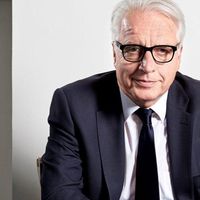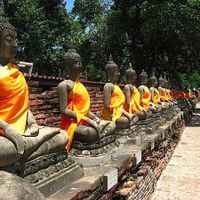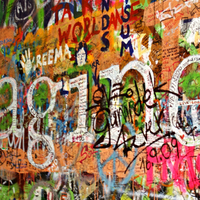Cultural Value Project study on impact of cultural relations on societies in transition

Can cultural activities help resolve conflict? A recently published study 'Culture in an Age of Uncertainty' by Hertie School and Open University for British Council and Goethe-Institut says they can.
Can cultural activities help solve international challenges? Under certain conditions, they can reduce conflict and strengthen civil society, a group of researchers discovered in a project commissioned jointly by the British Council and the Goethe-Institut. Designed and conducted by the Open University (UK) and the Hertie School of Governance (Germany), the Cultural Value Project took a close look at the impact of cultural relations on “societies in transition”. The results were based on a series of workshops, interviews and surveys in Ukraine and Egypt and were published in November 2018.
Researchers led by Hertie School Professor of Sociology Helmut K. Anheier and Open University Professor of Sociology Marie Gillespie combined big picture and close-up methodological approaches to explore cultural relations as a whole, and to assess the value of selected programmes. Discussions, interviews, mapping exercises, and surveys brought together the diverse perspectives of cultural actors and organisations, beneficiaries of specific programmes, and teams at the British Council and the Goethe-Institut in both countries.
Among other things, the report found that cultural programmes can help open up dialogue – even in small spaces – between conflicted parties. While they may not resolve social and political conflicts, they can provide indirect support, offering autonomous spaces for cultural actors outside the political sphere in societies where the relationship between state and non-state cultural actors is sometimes fraught, according to the report.
Nevertheless, foreign cultural institutions may find themselves in a “double-bind” – the challenge of responding to local needs while avoiding tensions with government bodies with whom they need long term cooperation to help resolve conflicts, the report said.
The report identified a number of characteristics that aid cultural projects in reducing conflict and strengthening civil society:
· They should be embedded in trusted partnerships with local state and non-state actors, and contribute to deepening and expanding them.
· They should support state and/or local independent cultural actors and organisations without alienating one group or the other; and funding allocation should not be seen as a zero-sum game in supporting local groups.
· Bridge-building activities between opposing factions help identify shared goals and common interests that are clearly communicated by skilled and trusted mediators.
· Organisations and users must share a deep understanding of the local security and political context; the exposure of artists and/or their works must be handled with care and diplomacy.
· Local cultural brokers must have the skills and support to engage in conflict resolution, as well a recognition of their role.
· Civil society actors and potential leaders should be equipped with skills that enable them to pursue change within and beyond their local communities.
Find out more about the Cultural Value Project on the British Council and Goethe-Institut websites. On the Open University website you can find details about and specific results of their Cultural Value Model, which was the basis for the case studies that provided the close-up view.
Similar content
posted on
18 Nov 2018
posted on
07 Feb 2017
posted on
12 Feb 2017
posted on
02 Aug 2010
posted on
20 Oct 2014
posted on
25 Sep 2019






